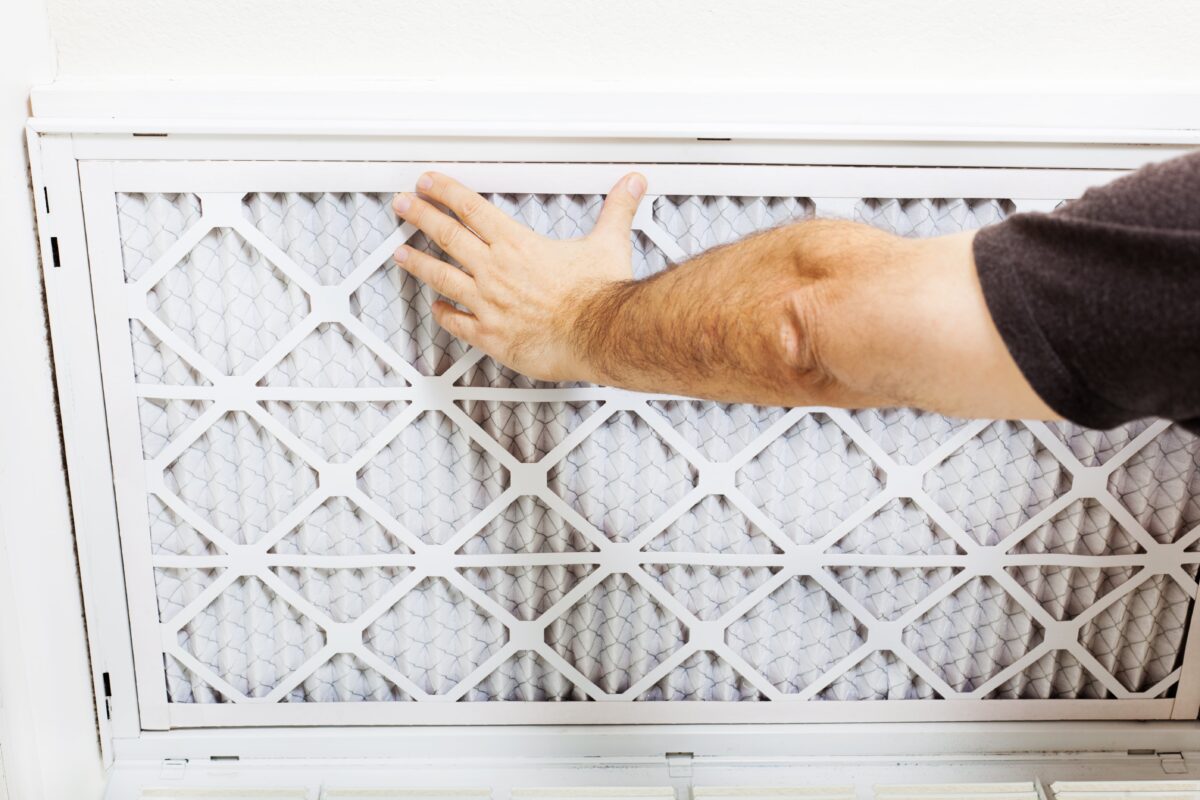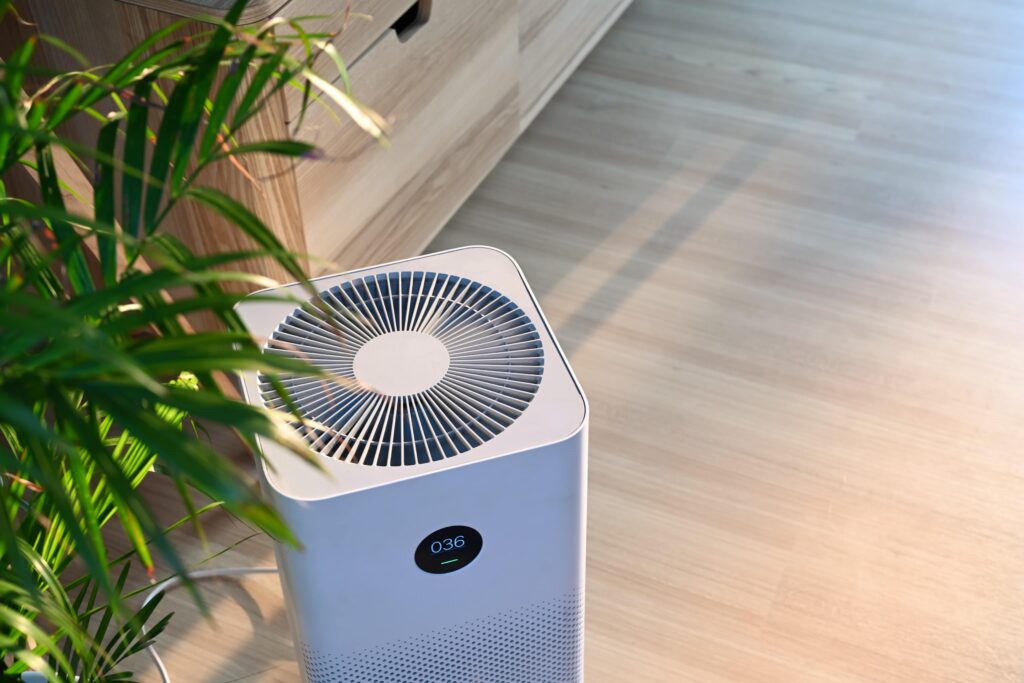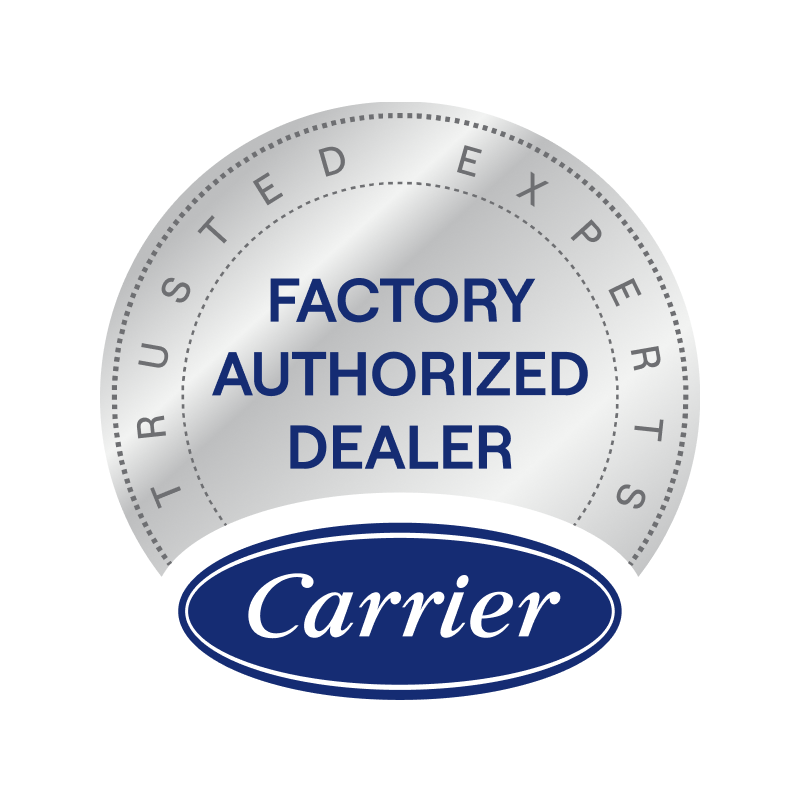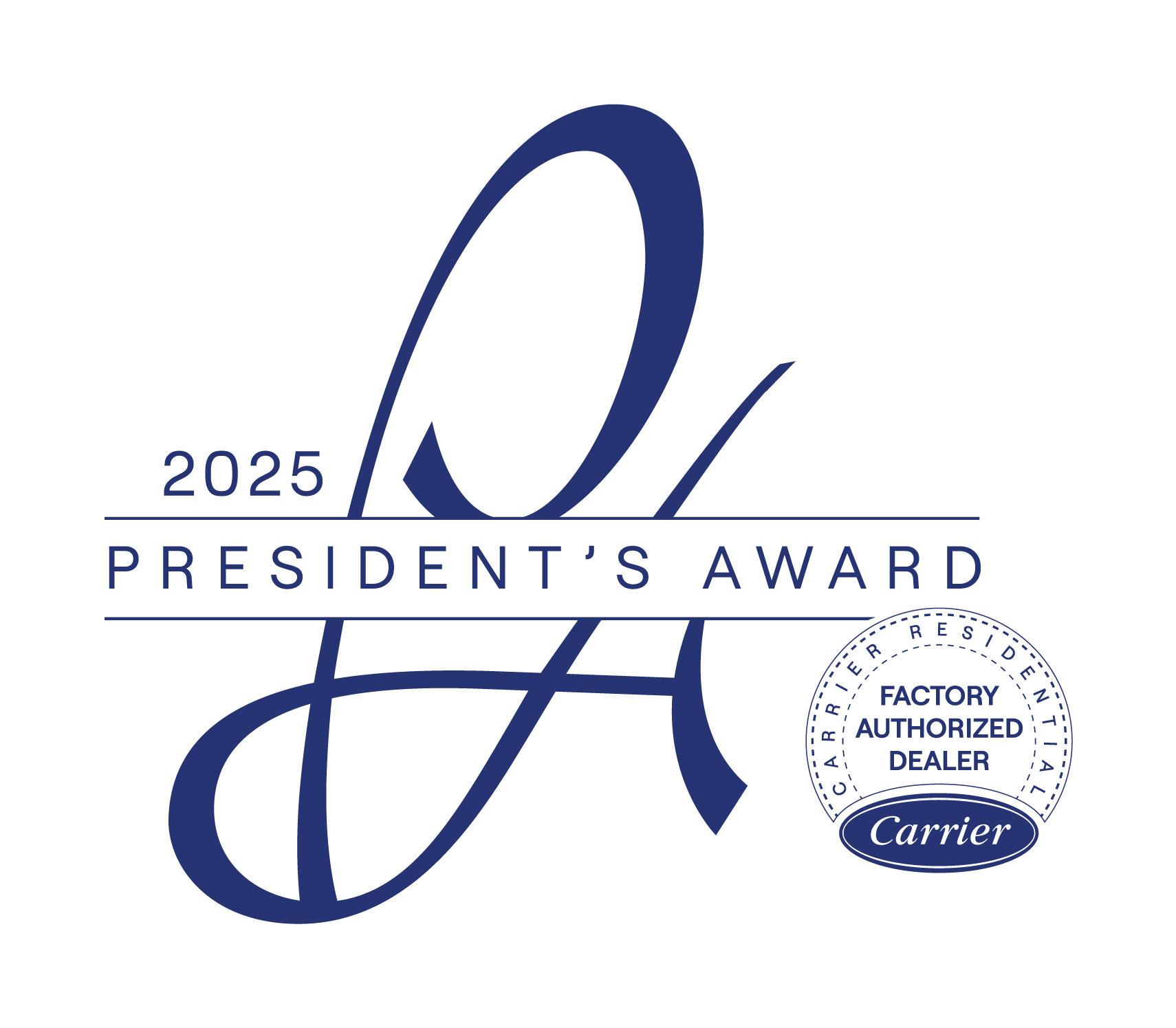Indoor Air Quality Improvement

Here’s some sobering news: the air in your house could be making your family sick. The Environmental Protection Agency rates indoor air quality as one of its three main health concerns because it can be five times dirtier than outside air. Poor indoor air hazards include asthma, heart disease, stroke, and lung cancer. The World Health Organization linked 3.2 million deaths globally to indoor air pollution, roughly the same number as from the outside air.
Air pollutants are everywhere, but you can fight back by taking a series of simple steps, including paying attention to your HVAC system and adding one or two appliances to monitor and improve air quality.
First, the EPA advises putting screens on your windows and doors and opening them up when the weather permits. Ensure your bathroom and kitchen have exhaust fans that open to the outside to vent indoor toxins you might be creating in those two rooms. The same is recommended for areas where you might use irritating chemicals, like paint, paint strippers, kerosene and other chemical solvents. Again, use those chemicals outside when at all possible.
Next, consider reducing the use of air fresheners and scented candles, which add volatile organic compounds to the air. Also, air out the dry cleaning outside for a few hours to let the cleaning chemicals release.
If you have carpets in your house, they are an effective pollutant-trapping device. Replace carpets with flooring when possible; if removing them is implausible, vacuum them in high-traffic areas meticulously and often, and deep clean them periodically. Meticulously usually means twice weekly, making multiple passes each time.

If air quality is an issue in your house, various inexpensive appliances can help. A working carbon monoxide detector will alert you if the dangerous compound reaches a detectable threshold in your home. Another hazardous colorless, odorless gas that requires a detector is radon, which can seep up from the ground into your home. Both detectors are inexpensive and unintrusive. In either case, once the gas is detected, its source can be located, and the threat can be eliminated.
Other common appliances control air quality in homes. Humidifiers and dehumidifiers control air moisture, preventing dangerous mold blooms and harmfully dry air, respectively. Ventilators remove stale air and replace it with fresh air from outside. Air filters clean the air as it circulates.
Perhaps the most significant appliance when it comes to indoor air quality is already in your home – it’s your HVAC system. Regular HVAC checkups can go a long way to clearing the air and keeping your family safe. During regular maintenance, one of our certified HVAC experts tunes up your furnace or AC so it runs efficiently, determines whether your blower motor is circulating air sufficiently, checks your ductwork for clean air flow and confirms that the air filter is stripping out harmful particles. During an AC checkup, our specialist examines the condenser, compressor and evaporator coil. If any of these elements are contributing to bad indoor air, they can remedy it.
Regular HVAC maintenance offers a big return on investment by extending the life of the unit and keeping your family healthy.
Changing your filters regularly can also help maintain your HVAC system. Most manufacturers recommend switching them out monthly. More importantly, they must be replaced when they begin to get clogged and are no longer doing their job. Anything you see in the filter is being breathed in by your family. Our team can help replace filters and address any other indoor air quality concerns you may have.
Taking a few simple and inexpensive actions is an investment in your family’s health.
At Holley Heating & Air Conditioning, your comfort is our #1 concern. Air conditioning system maintenance is the key to keeping your system up and running efficiently and cost-effectively. You can trust our experienced team to keep your system running smoothly in all seasons. Call us to schedule an appointment today.




